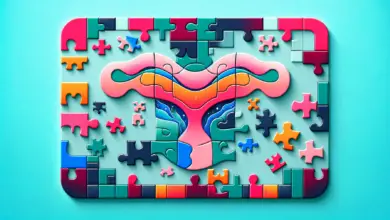Key Symptoms of Female Hormone Imbalance

Welcome to our comprehensive guide on the key symptoms of female hormone imbalance. Hormones play a crucial role in a woman’s overall health and well-being, affecting everything from mood and energy levels to reproductive health and skin condition. Understanding the signs of hormonal imbalance can help women identify potential issues and seek appropriate medical intervention. In this article, we will explore the most common symptoms of female hormone imbalance and provide insights into possible causes and treatment options.
1. Irregular Menstrual Cycle
One of the primary indicators of hormone imbalance in women is an irregular menstrual cycle. Changes in the length, duration, or intensity of periods can be a sign of hormonal disruption. Some women may experience longer or shorter cycles, heavier or lighter bleeding, or even missed periods altogether. Hormonal imbalances, such as polycystic ovary syndrome (PCOS) or thyroid dysfunction, can contribute to these irregularities.
If you notice significant changes in your menstrual cycle, it’s essential to consult with a healthcare professional who can help identify the underlying cause and recommend appropriate treatment options.
2. Mood Swings and Irritability
Fluctuations in hormone levels can significantly impact a woman’s mood and emotional well-being. Many women experience mood swings, irritability, or increased anxiety during certain phases of their menstrual cycle. Estrogen and progesterone imbalances can disrupt the delicate balance of neurotransmitters in the brain, leading to emotional disturbances.
Engaging in stress-reducing activities, maintaining a healthy lifestyle, and seeking emotional support can help manage mood swings associated with hormonal imbalance. In some cases, hormone replacement therapy may be recommended to restore hormonal balance and alleviate mood-related symptoms.
3. Fatigue and Low Energy
Feeling constantly tired and lacking energy can be another sign of hormone imbalance in women. Hormonal fluctuations, particularly in estrogen and thyroid hormones, can affect metabolism and energy levels. Women experiencing hormonal imbalances may struggle with chronic fatigue, even after getting adequate rest.
Adopting a healthy lifestyle that includes regular exercise, a balanced diet, and sufficient sleep can help combat fatigue. Additionally, addressing any underlying hormonal issues through medical intervention, such as hormone replacement therapy or thyroid medication, may be necessary to restore energy levels.
4. Weight Fluctuations
Hormonal imbalances can also contribute to weight fluctuations in women. Estrogen dominance or deficiency, insulin resistance, or thyroid dysfunction can all impact metabolism and lead to weight gain or difficulty losing weight. Women experiencing hormone-related weight issues may notice changes in their body composition, increased belly fat, or difficulty maintaining a healthy weight.
Adopting a healthy diet and engaging in regular physical activity are essential for managing weight fluctuations. In some cases, hormone therapy or medication may be recommended to address the underlying hormonal imbalance and support weight management efforts.
5. Skin Problems
Hormonal imbalances can manifest in various skin issues, including acne, dryness, or excessive oiliness. Fluctuations in estrogen and progesterone levels can disrupt the natural balance of hormones that regulate oil production and skin cell turnover. This disruption can lead to clogged pores, inflammation, and skin sensitivity.
Establishing a consistent skincare routine and using products suitable for your skin type can help manage hormonal acne and other skin problems. In severe cases, dermatological treatments or hormonal therapy may be necessary to address the underlying hormonal imbalance and improve skin health.
Conclusion
Recognizing the key symptoms of female hormone imbalance is crucial for maintaining optimal health and well-being. If you experience any of the symptoms mentioned in this article, it’s important to consult with a healthcare professional who can evaluate your hormone levels and recommend appropriate treatment options. Remember, every woman’s hormonal balance is unique, and finding the right approach to restore equilibrium may require individualized care.
By understanding the signs of hormone imbalance and seeking timely intervention, women can take proactive steps towards achieving hormonal harmony and enjoying a healthier, more fulfilling life.




